Related Research Articles

The ZX Spectrum is an 8-bit home computer developed and marketed by Sinclair Research. One of the most influential computers ever made and one of the all-time bestselling British computers, with over five million units sold. It was released in the United Kingdom on 23 April 1982, and around the world in the following years, most notably in Europe, the United States, and Eastern Bloc countries.
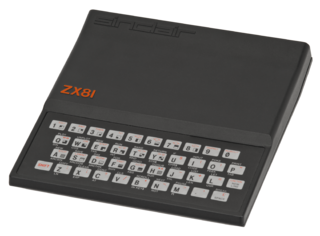
The ZX81 is a home computer that was produced by Sinclair Research and manufactured in Dundee, Scotland, by Timex Corporation. It was launched in the United Kingdom in March 1981 as the successor to Sinclair's ZX80 and designed to be a low-cost introduction to home computing for the general public. It was hugely successful; more than 1.5 million units were sold. In the United States it was initially sold as the ZX-81 under licence by Timex. Timex later produced its own versions of the ZX81: the Timex Sinclair 1000 and Timex Sinclair 1500. Unauthorized ZX81 clones were produced in several countries.

Acorn Computers Ltd. was a British computer company established in Cambridge, England in 1978 by Hermann Hauser, Chris Curry and Andy Hopper. The company produced a number of computers during the 1980s with associated software that were highly popular in the domestic market, and they have been historically influential in the development of computer technology like processors.
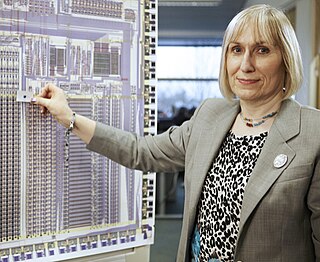
Sophie Mary Wilson is an English computer scientist, a co-designer of the Instruction Set for the ARM architecture.

Sir Clive Marles Sinclair was an English entrepreneur and inventor, best known for being a pioneer in the computing industry and also as the founder of several companies that developed consumer electronics in the 1970s and early 1980s.
"An Open Letter to Hobbyists" is a 1976 open letter written by Bill Gates, the co-founder of Microsoft, to early personal computer hobbyists, in which Gates expresses dismay at the widespread duplication of software taking place in the hobbyist community, particularly with regard to his company's software.
The Plessey Company plc was a British electronics, defence and telecommunications company. It originated in 1917, growing and diversifying into electronics. It expanded after World War II by acquisition of companies and formed overseas companies. It was listed on the London Stock Exchange and was a constituent of the FTSE 100 Index. In 1989, it was taken over by a consortium formed by GEC and Siemens which split the assets of the Plessey group.

Logica plc was a multinational IT and management consultancy company headquartered in London and later Reading, United Kingdom.
Sinclair Radionics Ltd was a company founded by Sir Clive Sinclair in Cambridge, England which developed hi-fi products, radios, calculators and scientific instruments.
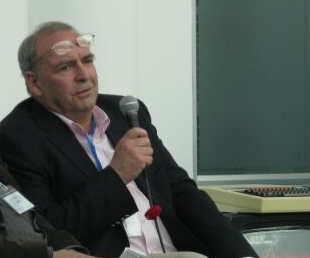
Christopher Curry is a British businessman and the co-founder of Acorn Computers, with Hermann Hauser and Andy Hopper. He became a millionaire as a result of Acorn's success.
Sinclair Research Ltd is a British consumer electronics company founded by Clive Sinclair in Cambridge in the 1970s. In 1980, the company entered the home computer market with the ZX80 at £99.95, at that time the cheapest personal computer for sale in the United Kingdom. A year later, the ZX81 became available through retailers, introducing home computing to a generation, with more that 1.5 million sold. In 1982 the ZX Spectrum was released, becoming the UK's best selling computer, and competing aggressively against Commodore and Amstrad.

Ferranti, officially known as Ferranti International PLC, was a UK-based electrical engineering and equipment firm that operated for over a century, from 1885 until its bankruptcy in 1993. At its peak, Ferranti was a significant player in power grid systems, defense electronics, and computing, and was once a constituent of the FTSE 100 Index.

Silicon Glen is the nickname given to the high tech sector of Scotland, the name inspired by Silicon Valley in California. It is applied to the Central Belt triangle between Dundee, Inverclyde and Edinburgh, which includes Fife, Glasgow and Stirling; although electronics facilities outside this area may also be included in the term. The term has been in use since the 1980s. It does not technically represent a glen as it covers a much wider area than just one valley.
Allen Boothroyd M Des RCA, FSCD, FRSA (1943–2020) was a British industrial designer of consumer electronics, best known for the Lecson amplifiers, BBC Microcomputer and co-founder of Meridian Audio.
Ivor Catt is a British electronics engineer known principally for his alternative theories of electromagnetism. He received a B.A. degree from Cambridge University, and has won the Electronic Design magazine's "best product of the year" award on 26 October 1989, after £16 million funding.
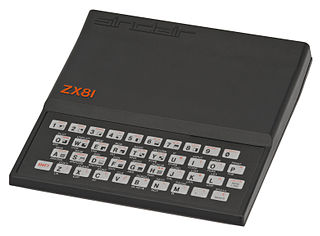
Rick Dickinson was a British industrial designer who developed pioneering computer designs in the 1980s. Notable examples of his design work include the ZX81 case and touch-sensitive keyboard and the ZX Spectrum's rubber keyboard.

The MK14 was a computer kit sold by Science of Cambridge of the United Kingdom, first introduced in 1977 for £39.95. The price was very low for a complete computer system at the time, and Science of Cambridge eventually sold over fifteen thousand kits.

The BBC Microcomputer System, or BBC Micro, is a series of microcomputers designed and built by Acorn Computers Limited in the 1980s for the Computer Literacy Project of the BBC. The machine was the focus of a number of educational BBC TV programmes on computer literacy, starting with The Computer Programme in 1982, followed by Making the Most of the Micro, Computers in Control in 1983, and finally Micro Live in 1985.
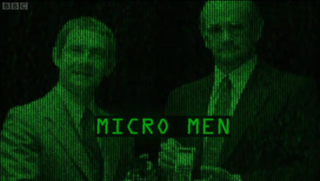
Micro Men is a 2009 one-off BBC drama television programme set in the late 1970s and the early-mid 1980s, about the rise of the British home computer market and the early fortunes of Sinclair and Acorn Computers. It focuses on the rivalry between Sir Clive Sinclair, who developed the ZX Spectrum, and Chris Curry, the man behind the BBC Micro.
References
- ↑ Bidmead, Chris (15 November 2011). "Jim Westwood, home micro revolutionary". The Register. Retrieved 17 May 2019.
- ↑ "Jim Westwood". Planet Sinclair. Retrieved 17 May 2019.
- ↑ "Cambridge Electronics Consultancy". cambridgenetwork.co.uk. Archived from the original on 10 March 2007.